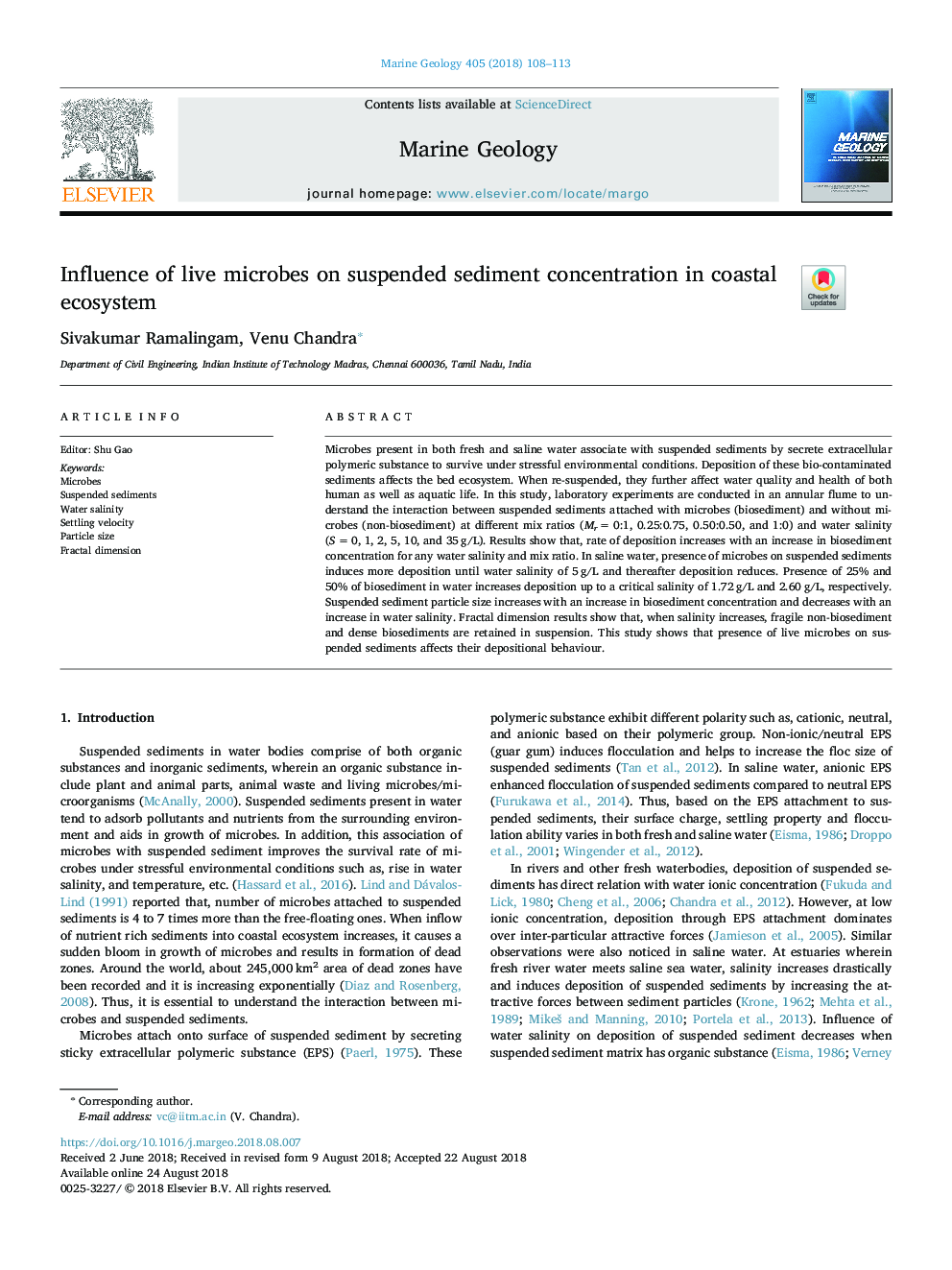| Article ID | Journal | Published Year | Pages | File Type |
|---|---|---|---|---|
| 10119993 | Marine Geology | 2018 | 6 Pages |
Abstract
Microbes present in both fresh and saline water associate with suspended sediments by secrete extracellular polymeric substance to survive under stressful environmental conditions. Deposition of these bio-contaminated sediments affects the bed ecosystem. When re-suspended, they further affect water quality and health of both human as well as aquatic life. In this study, laboratory experiments are conducted in an annular flume to understand the interaction between suspended sediments attached with microbes (biosediment) and without microbes (non-biosediment) at different mix ratios (Mrâ¯=â¯0:1, 0.25:0.75, 0.50:0.50, and 1:0) and water salinity (Sâ¯=â¯0, 1, 2, 5, 10, and 35â¯g/L). Results show that, rate of deposition increases with an increase in biosediment concentration for any water salinity and mix ratio. In saline water, presence of microbes on suspended sediments induces more deposition until water salinity of 5â¯g/L and thereafter deposition reduces. Presence of 25% and 50% of biosediment in water increases deposition up to a critical salinity of 1.72â¯g/L and 2.60â¯g/L, respectively. Suspended sediment particle size increases with an increase in biosediment concentration and decreases with an increase in water salinity. Fractal dimension results show that, when salinity increases, fragile non-biosediment and dense biosediments are retained in suspension. This study shows that presence of live microbes on suspended sediments affects their depositional behaviour.
Related Topics
Physical Sciences and Engineering
Earth and Planetary Sciences
Geochemistry and Petrology
Authors
Sivakumar Ramalingam, Venu Chandra,
